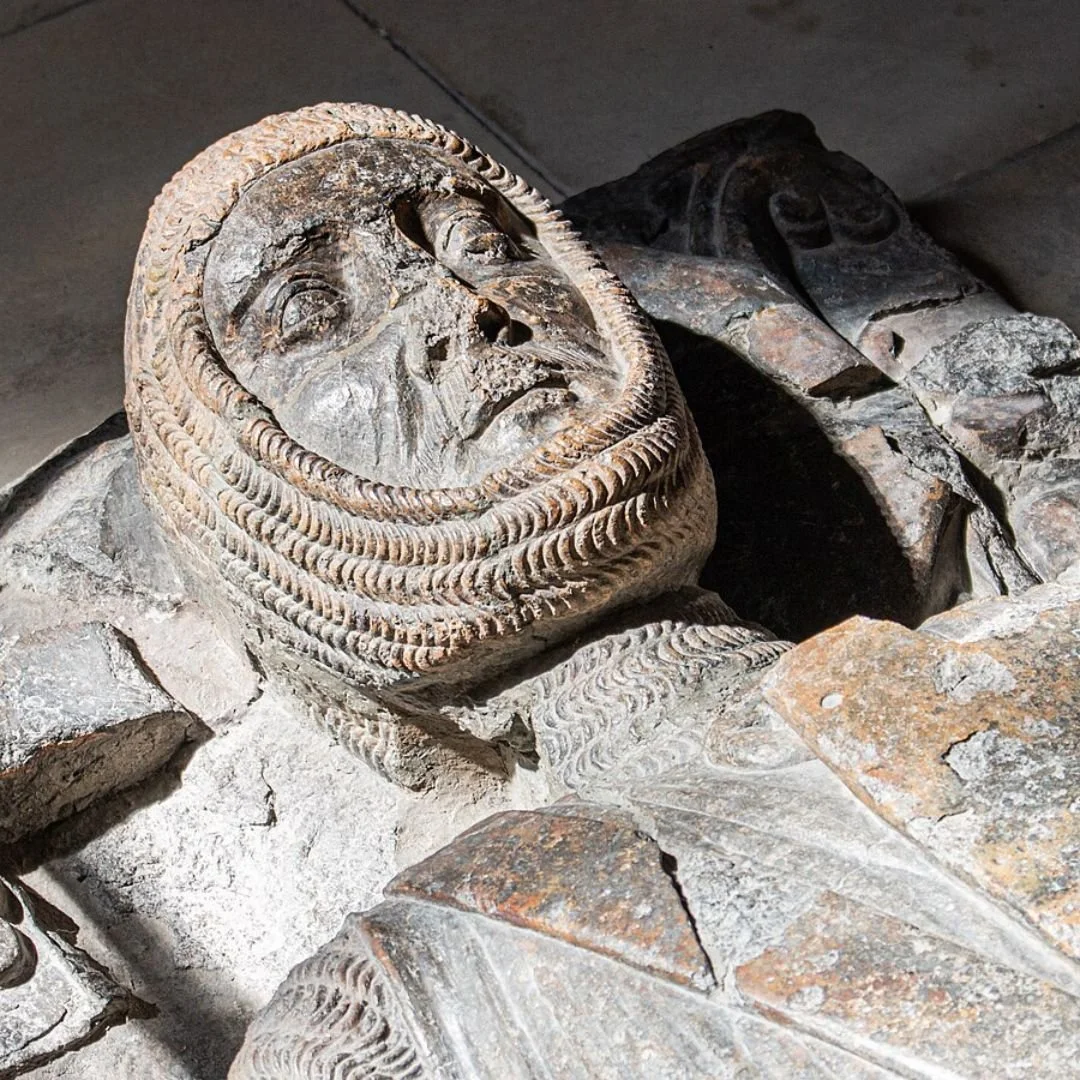The Heptarchy: Seven Kingdoms
Before Alfred the Great, England was divided into seven kingdoms, a period known as The Heptarchy.
Approximately between the 5th and 9th centuries, each of the seven kingdoms had its own King, and they were often in conflict.
After many battles and other disputes, the kingdoms were eventually merged into a single kingdom in the 10th Century.
The term "Heptarchy" comes from the Greek - it refers to the traditional belief that Anglo-Saxon England was divided into seven kingdoms: East Anglia, Essex, Kent, Mercia, Northumbria, Sussex, and Wessex.
The formation of the Heptarchy was a complex process influenced by various factors following the Roman withdrawal from Britain around the early 5th century.
As Roman authority declined, various Anglo-Saxon tribes began migrating to and settling in different parts of the island.
These tribes, such as the Angles, Saxons, and Jutes, established their own territories, which eventually evolved into the seven principal kingdoms.
Initially, these tribes were loosely organised, with power often concentrated in local chieftains or clans.
Over time, as the tribes settled, they established more permanent structures of governance.
The combination of tribal loyalties, territorial claims, and the need for defence against external threats, such as Celtic tribes and later Viking incursions, led to the consolidation of power in certain areas.
As a result, larger kingdoms began to emerge, often through conquest or alliances with neighbouring tribes.
Each kingdom developed its own identity, shaped by local customs, languages, and beliefs.
This period saw a mix of pagan practices and early Christianity, particularly as missionaries began to arrive, which further influenced political structures.
For instance, the spread of Christianity often brought with it a degree of centralisation and organisation, as local churches became important centres of power and influence.
The competition for resources, land, and power among these emerging kingdoms was fierce.
Kingdoms would frequently engage in warfare, forming temporary alliances to combat stronger neighbours or Viking raiders.
This tumultuous environment led to a fluid political landscape, with boundaries and allegiances shifting over time.
By the late 6th and early 7th centuries, the concept of the Heptarchy was solidifying, with the seven kingdoms being recognised as significant political entities.
Over the following centuries, as some kingdoms expanded and others weakened, Wessex eventually rose to prominence, setting the stage for the eventual unification of England under a single monarchy in the 10th century.
The Heptarchy were marked by continual warfare and shifting alliances as these kingdoms vied for supremacy over one another.
Several famous battles occurred between the Anglo-Saxon kingdoms during the Heptarchy, as they constantly vied for dominance.
Among the most significant battles was the Battle of Æthelford in 894, where the forces of King Alfred of Wessex faced off against the invading Vikings.
This battle was pivotal in Alfred's struggle to protect his realm, showcasing his strategic acumen as he adapted to the challenges posed by Viking incursions.
The Kingdoms
Northumbria: One of the most powerful early kingdoms, Northumbria was formed by the union of two earlier kingdoms, Bernicia and Deira.
At its height, Northumbria extended from the River Humber to modern-day Scotland and was a centre of learning and culture, with monastic sites like Lindisfarne and monasteries that produced masterpieces like the Lindisfarne Gospels.
Mercia: Located in the central part of England, Mercia was a formidable military power under kings like Penda and Offa.
Offa's Dyke, a large earthwork marking the boundary between Mercia and the Welsh kingdoms, is a lasting testament to its strength.
Wessex: In the southwest, Wessex rose to prominence in the later stages of the Heptarchy, ultimately becoming the dominant kingdom.
Under rulers like King Alfred the Great, Wessex successfully resisted Viking invasions and laid the foundations for a unified English kingdom.
East Anglia: East Anglia was settled by the Angles and became an influential kingdom, particularly in the early Christian conversion of England.
The kingdom fell to Viking conquest in the 9th century, with its martyr-king, Edmund, becoming a saint.
Kent: The Kingdom of Kent, established by the Jutes, was one of the first Anglo-Saxon kingdoms to convert to Christianity after King Æthelberht welcomed Augustine’s mission from Rome in 597.
Its strategic location on the southeastern coast made it an early center of trade and communication with continental Europe.
Essex: The Kingdom of Essex, formed by the East Saxons, was a smaller kingdom that often fell under the influence of its larger neighbours, particularly Mercia and Wessex.
Sussex: The South Saxons founded Sussex, but like Essex, it was often dominated by more powerful neighbours and had less influence in the grander political schemes of the time.
The decline of the Heptarchy occurred in the 9th century, driven primarily by Viking invasions and internal shifts in power.
Viking raids, which began in the late 8th century, weakened many of the Anglo-Saxon kingdoms.
Northumbria, Mercia, and East Anglia suffered particularly, with Viking settlers conquering large swathes of their territories and establishing the Danelaw.
As these kingdoms faltered, Wessex, under leaders like Alfred the Great, emerged as the dominant force in resisting Viking advances.
Alfred’s military successes, along with strategic alliances and his vision of uniting the Anglo-Saxon kingdoms, marked the beginning of the end for the Heptarchy.
By the mid 10th century, Wessex had absorbed the remaining independent kingdoms, leading to the unification of England under one ruler.
The Heptarchy, once a period of divided rule, thus gave way to a more centralised and cohesive English kingdom.
If you enjoyed this blog post, please follow Exploring GB on Facebook for daily travel content and inspiration.
Don’t forget to check out our latest blog posts below!
Thank you for visiting Exploring GB.




















